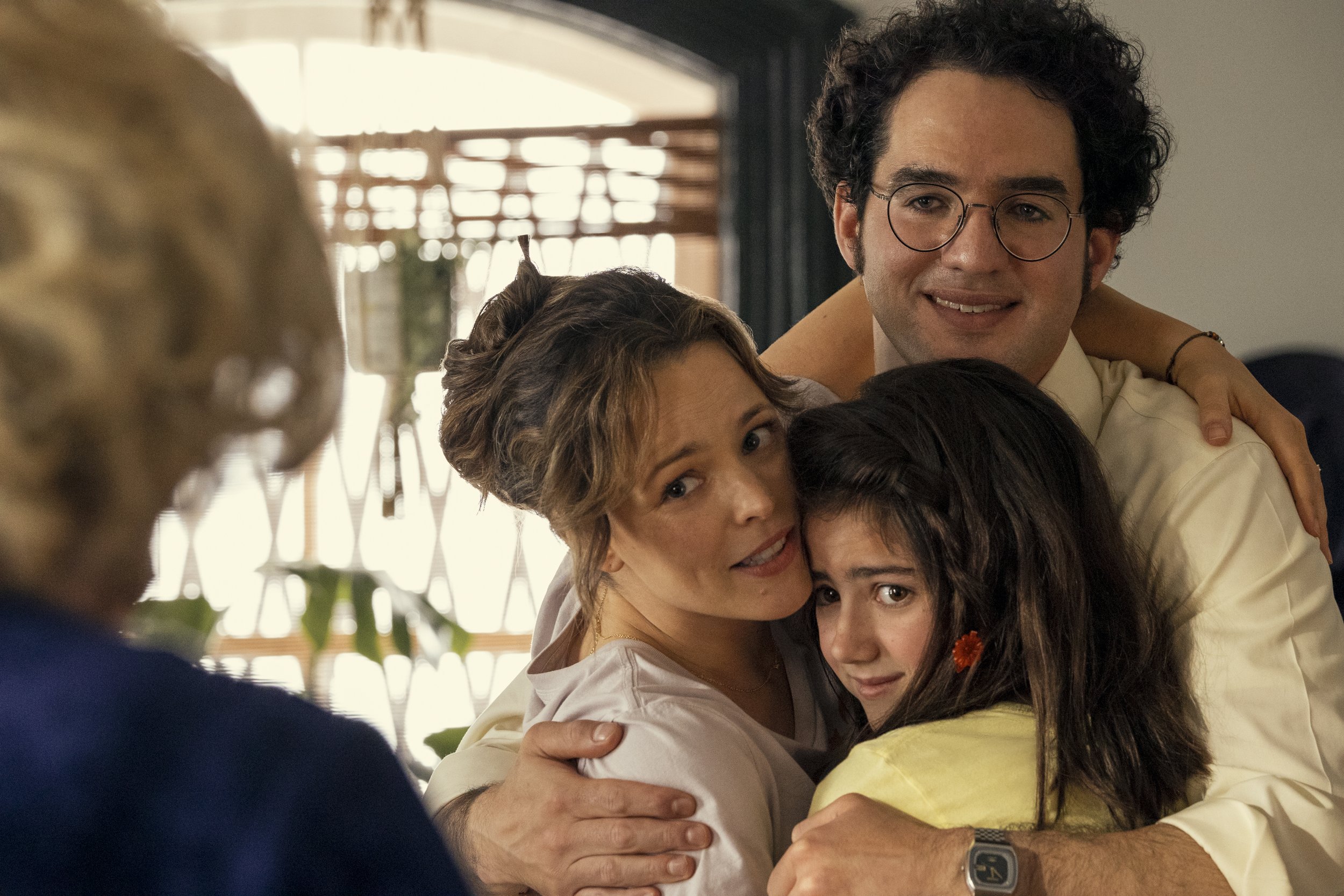Are You There God? It’s Me, Margaret (2023) (dir. Kelly Fremon Craig)
Click above to hear my interview with writer/director Kelly Fremon Craig!
A lot of people have been saying “movies are back” since Top Gun: Maverick made a huge dent in the box office and audiences found that film to be a welcome return to the kind of Hollywood blockbusters we frequented pre-Covid. I honestly haven’t had that kind of rapturous communal experience with an audience in ways that I have been seeking out… until a preview public screening of Are You There God? It’s Margaret. It felt so good to be in a theater experiencing this with a lively crowd that was completely won over.
I’ve often said that going to a movie theater can be like my church in which everyone surrounding me all connects on the same level in some way to the worlds being presented to us. It was clear to see that this movie was speaking to the entire audience of all ages in some way (yes that includes men). This is a movie that deserves the kind of box office success for the entire family, far more than the recent Super Mario Bros reboot.
It starts with the casting here and their immediate likability. In 1970, 11-year-old Margaret Simon (Abby Ryder Fortson) moves from New York City to New Jersey when her father, Herb (Benny Safdie) gets a promotion. Margaret makes friends with Nancy (Elle Graham), Janie (Amari Price) and Gretchen (Katherine Kupferer). Margaret has a great mom in Barbara (a radiant Rachel McAdams) who will share with her daughter the downsides of wearing a bra. Barbara supports Margaret so if her daughter feels she's ready for a bra, then it would be counterproductive for Barbara to try to talk her out of it. That’s the sign of an attentive, supportive parent that isn’t too controlling - let the child make their decision but make them aware of all possibilities as a result of the choice they make.
Later, more emotional conversations come up for Barbara including the origins of familial conflict involving different ideologies. When Margaret asks about her maternal grandparents, Barbara has to tell the emotional story of why she doesn't talk to her parents, with everything that affects Barbara, in a way Margaret can understand. In addition to biological changes, Margaret also explores religion. She begins her messages to God just because she has heard that God is someone you're supposed to talk to.
Margaret tries going to synagogue with her grandmother, Sylvia (Kathy Bates). Sylvia's unabashed joy at her granddaughter asking to go to temple is priceless. Margaret also visits a gospel Christian church, a white Christian church and a Catholic confession looking for answers. Buddhism and other religions are not options for Margaret, which does seem consistent with the culture of suburban New Jersey, especially in the '70s. There’s also the awkwardness of attraction, fitting in, finding a peer circle and so many new experiences that come with the arrival of puberty.
This being an adaptation of the beloved Judy Blume novel that has helped generations of young women feel less alone, you might wonder if fans of the book will be pleased. From what I gather, it seems clear that writer/director Kelly Fremon Craig not only knew this book, but lived this story herself. She knows Margaret probably because she was her at one point in her young life. There’s a personal stamp regardless but what truly makes this movie work is the fact that just about any one can relate to familial complications and growing pains.
I am reminded of Bo Burnham’s Eighth Grade or Craig’s last film, The Edge of Seventeen (one of my absolute favorite coming-of-age stories) or even one of my favorite TV shows growing up, The Wonder Years. This gears towards a younger demographic and age group but all three of these coming-of-age stories rang true to me, despite not having grown up as a teenage girl or being a child of this particular era.
It helps too that the story is multi-generational by never neglecting what the mom or grandmother are going through in the face of change as well. McAdams and Kathy Bates are as wonderful as expected and Benny Safdie is equally terrific as the stalwart father who tries but doesn’t always succeed to relate to his teenage daughter. But we have to talk about Margaret. Abby Ryder Forston gives an endearing and heartfelt performance as the title character and brings this young teenager to life in a way that is genuine and natural. Blume shows that there is no right way to be a woman and Forston’s performance showcases a number of different emotions in ways that always ring true. She’s simply growing at her own pace as someone who really wants to fit in. Forston is going to be a career we’ll all likely follow and watch flourish in a way that is truly exciting.
Fremon Craig explores the fast-tracked societal pressures of becoming a woman at a time when time speeds up. It’s terrifying not knowing what’s to come especially the physical changes that feel completely different. Blume normalized menstruation, questioning God and religion, as well as sexual exploration being examined and that’s why it is essential viewing for anyone heading into middle school. The 1970s production design emphasizes the timelessness and simplicity of how random friendships were born out of necessity, made more obvious by removing the internet and social media. I had to make friends with those in my neighborhood much like Margaret, often including those who were a bit different or less shy. They were just around and available. The good ole’ days before adulthood decided that socializing in person is more of a challenge due to busy schedules. Back then, it felt like anything was possible and with that - came a lot of anxiety and all of that is fully realized in Fremon Craig’s impeccable adaptation here.
I felt so charmed over nearly every scene, every choice, every performance to where it did feel a much-needed embrace of positive energy. Perhaps this is the kind of story I respond to far more than the superhero stories we’re inundated with lately because, well, I’ve experienced versions of what takes place in Margaret’s world. Each awkward situation or character arc (including the mom’s) is captured in a way that is never cloying or eye-rolling. Some experiences truly are universal. A warm blanket of compassion is draped over this delightful story that reveals many complicated emotions that consistently felt real from beginning to end. Fremon Craig definitely has captured the spirit of Blume’s work and with any luck, this will be a film for all young adults to seek out and turn into an all-time classic in the same way that Blume’s book was for previous generations. This is one of the year’s best films.



